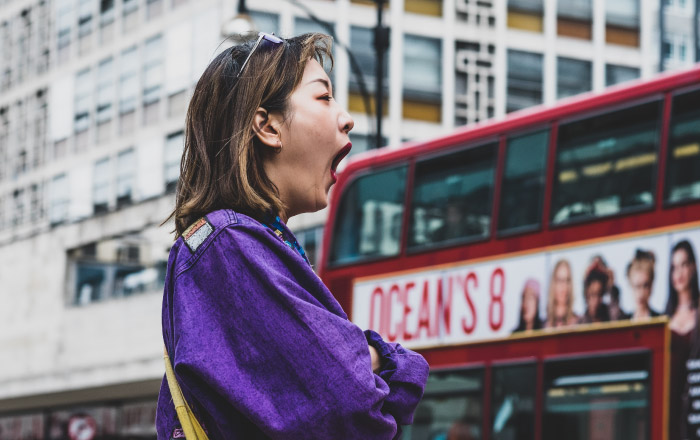Sleep Apnea Signs & Symptoms
The dictionary defines “apnea” as “the cessation of respiration”. Therefore, “sleep apnea” means to stop breathing while sleeping. No wonder it’s considered a serious health condition! There are many symptoms of sleep apnea, snoring being the most common. By conservative estimate, approximately 100 million Americans snore. Are you one of them? If so, you might have sleep apnea; but then again, not everyone who snores has sleep apnea. Read on to learn about additional signs and symptoms of this vexing problem so you can identify if you have it.
Types of Sleep Apnea
Obstructive sleep apnea is the most common form. It occurs when the throat muscles relax and the tongue blocks the pharyngeal airway, leading to temporary pauses in breathing throughout the night. Central sleep apnea occurs when your brain doesn’t send proper signals to the muscles that control breathing. Complex sleep apnea is a combination of both obstructive and central.
Symptoms
In addition to loud snoring, other common symptoms include:
- Gasping for air during sleep
- Awakening with a dry mouth
- Morning headache
- Difficulty staying asleep
- Difficulty focusing and paying attention
- Irritability
- Excessive daytime sleepiness

Potential Consequences
Sleep apnea increases your risk for a range of health issues, including:
- Gastric reflux
- Memory problems
- High blood pressure
- Sexual dysfunction
- Diabetes
- Heart disease
- Stroke
- Sudden cardiac death
Treatment Options
Fortunately, there are various effective treatments for sleep apnea:
CPAP
CPAP therapy—which stands for continuous positive airway pressure—is a common treatment for obstructive sleep apnea. A CPAP machine uses a hose and mask or nosepiece to deliver constant and steady air pressure. However, CPAP machines can be difficult to get accustomed to, and many patients find it impossible to relax while having such a device strapped to their face.
Oral Appliance
As an alternative, Three Creek Dentistry offers oral appliance therapy, which provides relief by keeping the airway open during sleep. This appliance is similar to a fitted mouthguard, and does not limit your ability to open your mouth, yawn, or speak. So if you are experiencing any of the symptoms of sleep apnea, please don’t delay having it checked out. Contact us at Three Creek Dentistry to set up a consultation!